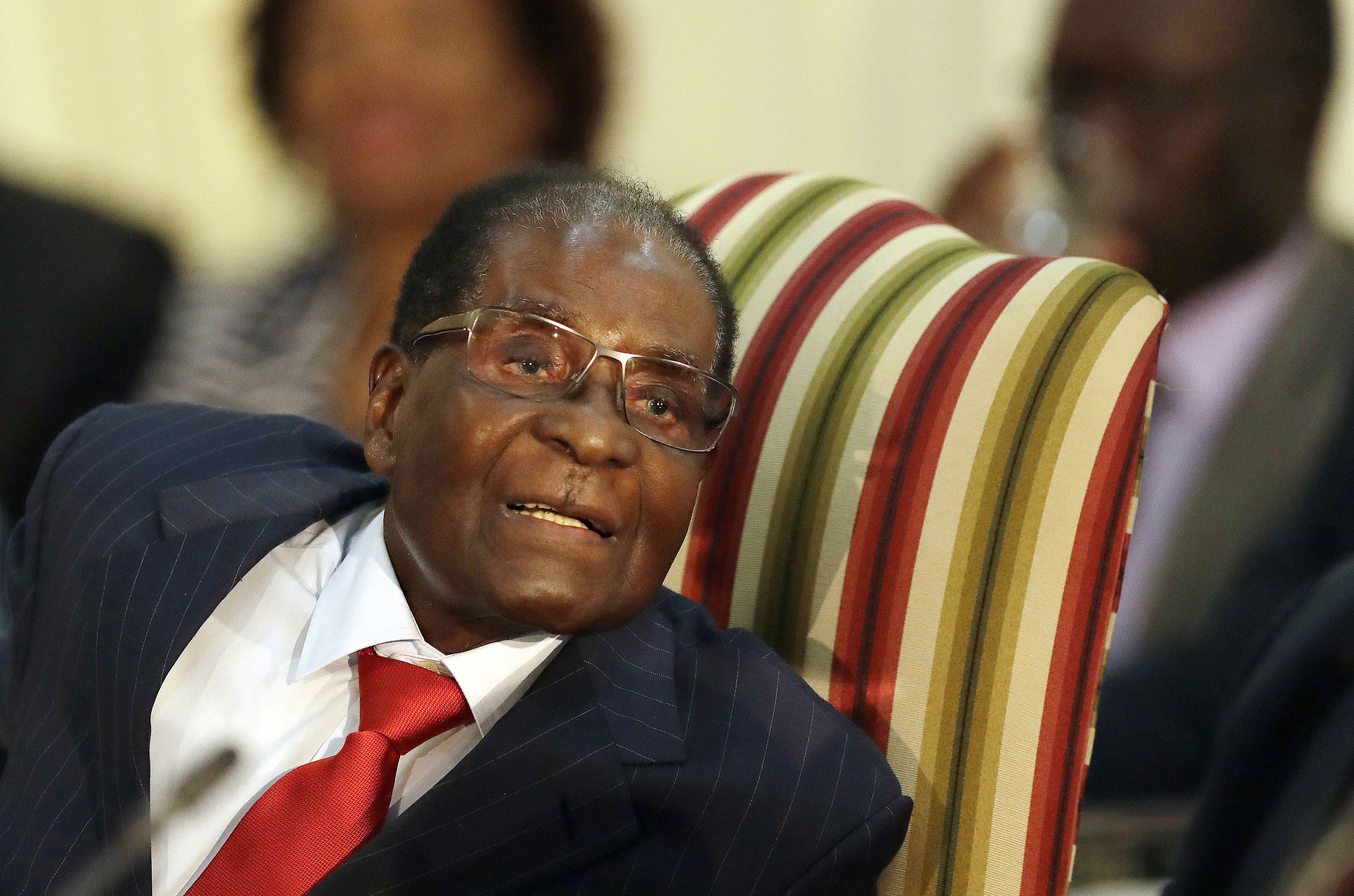
ZIMBABWEAN president Robert Mugabe’s appointment as a “goodwill ambassador” for the World Health Organisation is “surprising and disappointing” given his regime’s record of human rights abuses, the UK Government has said.
A spokesman said Britain has raised concerns with the WHO director general Tedros Adhanom Ghebreyesus over Mr Mugabe’s new role, warning that it risks overshadowing the organisation’s work on chronic diseases.
Zimbabwe’s leader has long faced European Union and United States sanctions over human rights abuses.
Commenting on his appointment, the UK Government spokesman said: “President Mugabe’s appointment is surprising and disappointing, particularly in light of the current US and EU sanctions against him.
“We have registered our concerns with WHO director general Dr Tedros Adhanom Ghebreyesus.
“Although Mugabe will not have an executive role, his appointment risks overshadowing the work undertaken globally by the WHO on non-communicable diseases.”
Mr Tedros, an Ethiopian who became the WHO’s first African director-general this year said Mr Mugabe could use his role “to influence his peers in the region” and claimed Zimbabwe was “a country that places universal health coverage and health promotion at the centre of its policies to provide healthcare to all”.
But despite once being known as the breadbasket of southern Africa, in 2008 a charity released a report documenting failures in Zimbabwe’s health system and blamed Mr Mugabe for policies that led to a man-made crisis.
Physicians for Human Rights found his government had “presided over the dramatic reversal of its population’s access to food, clean water, basic sanitation and health care”.
It went on: “The Mugabe regime has used any means at its disposal, including politicising the health sector, to maintain its hold on power.”
The report said Mr Mugabe’s policies had led to “the shuttering of hospitals and clinics, the closing of its medical school and the beatings of health workers”.

Enjoy the convenience of having The Sunday Post delivered as a digital ePaper straight to your smartphone, tablet or computer.
Subscribe for only £5.49 a month and enjoy all the benefits of the printed paper as a digital replica.
Subscribe